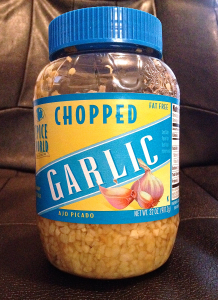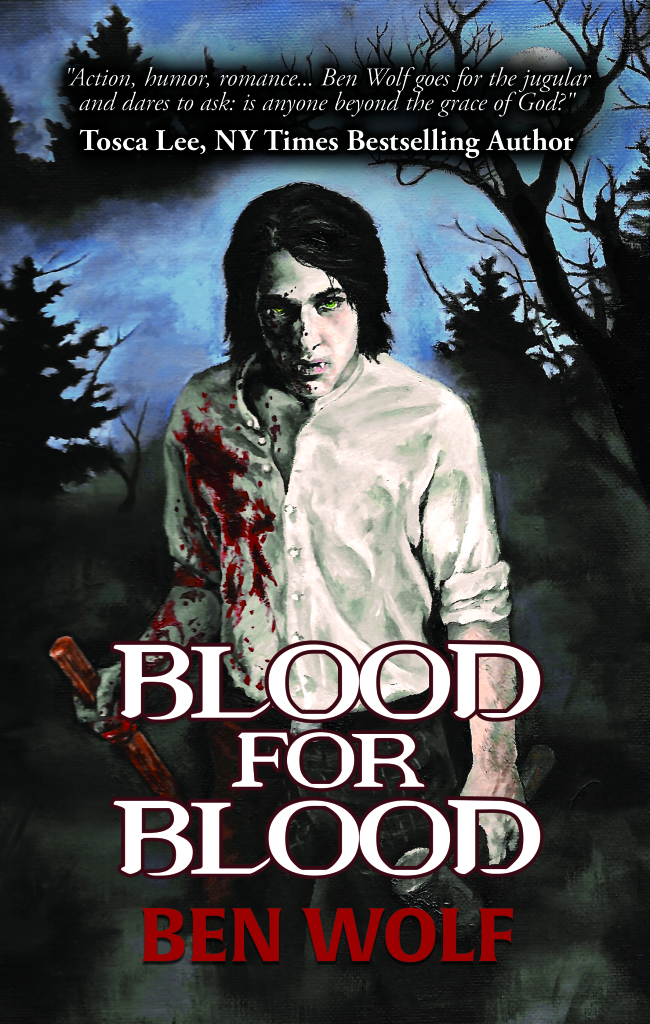As I mentioned in my first post in this series, vampirism is diametrically opposed to everything God calls good in his Word. But in light of this distinct separation, how would a vampire who got saved navigate the vast chasm between his old existence and his newfound faith? Read on to find out my thoughts on the matter and to get a glimpse at some of the questions I considered when writing my debut novel, Blood for Blood.
You might be a vampire if…
…you can’t stand garlic?
“Good, isn’t it?” Dante asked.
Raven nodded as he chewed. He wished he could enjoy it more fully.
Sourness tingled in his mouth, then warmth, then burning heat. Raven’s eyes widened as he stared down at his plate. The spaghetti sauce was searing his mouth from the inside out.
“Is something wrong, Raven?” Luco’s brow furrowed.
He swallowed the bite in a hurry, and it burned all the way down his throat and into his stomach. “What’s in this sauce?”
Maria glanced at Luco. “Tomatoes, basil, oregano—” She stopped and put her hand over her mouth.
“Garlic?” The burning spread to the outside of Raven’s lips.
Maria’s eyes widened and she nodded. “I’m sorry—I didn’t know.”
“Didn’t know what?” Angelica asked.
Raven clenched his teeth. He pushed away from the table. “Excuse me.”
As Raven tore through the back door, Garrett’s laughter filled the house behind him.
– Excerpted from Chapter 4 of Blood for Blood, by Ben Wolf
Not all lore suggests that vampires are susceptible to garlic, but thanks to most modern interpretations of the vampire archetype, many vampires are. As such, it’s one of those pieces of lore that stuck around.
One of the most vivid vampire scenes I remember was one I saw as a kid, in Mel Brooks’s Dracula: Dead and Loving It. (You can watch the scene here if you’re interested.) Leslie Nielsen, one of my all-time favorite comedic actors, plays Dracula, and he attempts to creep into Mina’s (the girl he’s after) room late one night.
However, Dr. Van Helsing (played by Mel Brooks), in the very definition of overkill, has booby-trapped the room with hundreds of strands of garlic. It hung from the ceiling, from the windows, from the curtains over Mina’s bed—it was enough to repel every vampire in history several times over. As with many of Mel Brooks’s cinematic moments, it stuck with me.
Many vampires throughout literature and cinema and everywhere else have grappled with garlic. But what does an aversion to garlic have to do with how vampirism contrasts with biblical principles?
It doesn’t.
I wish I had some verses and some sound theology for this, but I just don’t. The closest I can come up with is what I discussed in the first blog post of this series: vampires drink the blood of living people, and they shouldn’t. Garlic might burn them because they drink the blood, but I have no biblical basis for why it’s garlic specifically that does it.
Garlic is explicitly mentioned in the Bible once in Numbers 11:5, but other than that it’s just not talked about at all. If you have any insight on why, biblically, a vampire should be repelled by garlic, then please share your wisdom in the comments section.
Historically, the idea of repelling vampires with garlic was probably derived from a superstition or an old wives’ tale. If you’ve ever tried (or even smelled) garlic raw, it’s some pretty strong stuff. It repels normal people sometimes, so how much more effective would it be on vampires? For the sake of the story in Blood for Blood, it’s quite a bit.
Garlic was also used to as one of the herbs to overpower the stench of death when preparing corpses for burial. Assuming this is true, that would make a pretty good basis for why vampires don’t like the stuff–it’s a reminder that they’re actually dead and can’t come back.
Beyond that, I’ve got nothing except an explanation as to why I included it in my story: you may not know this, but Blood for Blood wasn’t originally my idea.
At a writer’s conference back in 2009, my good friend and writer Matt Sheehy was discussing how hilarious of a concept it would be for a vampire to get saved, and I loved the idea. He talked about how a vampire who was saved might end up helping out with a tent revival and might get asked to help secure the tent via a hammer and some big wooden tent stakes (see my next post, #8, for more on that), and how jarring that might be for a vampire.
I took the idea and ran with it and I asked, what if the family who led him to Christ was Italian and they always had garlic everywhere? How would that affect the vampire? (I also thought through a lot of these other classic vampire indicators and how they would change upon a vampire dedicating his life to Christ, and thus Blood for Bloodwas born.)
I asked Matt for permission to run with the idea as an actual novel, and he gladly obliged. He said he had no interest in writing vampire fiction and that it was just a silly idea he’d had, so I should go ahead and work on it. (Little did he know that I had already started a draft and made serious progress in it…shhhhhh.)
Not long after that, I finished Blood for Blood, complete with the various vampire taboos he and I had discussed at the conference plus several more that I added later on. And, of course, I kept the Italian evangelist, his family, and their garlic.
What are your thoughts on garlic and vampires? In a lot of contemporary vampire stories, garlic is ignored altogether. Do you think it should still retain a place in vampire fiction? Or is it solidly a part of their history and nothing else? Share your thoughts in the comments, will you?
And again, if you have some insight as to a biblical reason why vampires wouldn’t like garlic, please share it with us.
Don’t forget to pick up your copy of Blood for Blood today by clicking on the cover image below.


